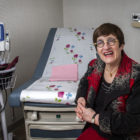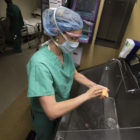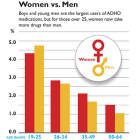Women's Health
Menopause’s Long Learning Curve
|
Every day an estimated 6,000 women in the U.S. reach menopause, a natural part of aging. But for countless women, it feels like anything but. The symptoms, which range from merely bothersome to debilitating, are triggered by the body’s loss of estrogen, which occurs at a median age of 50 to 52 among women in industrialized countries. Vasomotor symptoms alone (hot flashes, night sweats), which disrupt sleep and count as the most commonly reported complaint, last an average of 10 years and affect nearly 90 percent of menopausal women. A recent study published in the journal Menopause found that 250,000 women who suffered from hot flashes lost a cumulative $300 million per year in wages due to lost productivity and doctor visits, compared to asymptomatic women.



